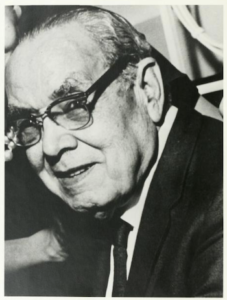
George P. Johnson
*George P. Johnson was born on this date in 1885. He was a Black businessman, journalist, and pioneer in Black cinema.
George Perry Johnson and his brother Noble Johnson were raised in Colorado Springs, Colorado. George attended Hampton Institute in Hampton, Virginia, before moving to Oklahoma, where he worked at one of the region's early Black newspapers in 1906. After moving to Tulsa, he produced the Tulsa Guide, another early Black regional newspaper, and became the first Black clerk at the Tulsa post office. In early 1915, Johnson worked as a mailman in Omaha, Nebraska, and his brother played bit parts in Universal Studios films.
In 1916, he and his brother founded Lincoln Motion Pictures. They formed the studio, among the earliest Hollywood film companies, to avoid the financial domination of whites in the film industry and to protest the racist attitudes embodied in D. W. Griffith's The Birth of a Nation (1915). Noble ran Lincoln's studio in Los Angeles, while George continued to work as a postman in Lincoln, Nebraska, directing the company's booking office there. Lincoln Motion Pictures, the second Black film company in America.
The company was one of the first independent film companies to make Black films with Black financing for Black audiences, offering Black actors and actresses some of the medium's few opportunities to play characters other than servile domestics or heartless villains. Lincoln made about one film per year between 1915 and 1922, including The Realization of a Negro's Ambition (1916), The Trooper of Troop K (1916), and A Man's Duty (1921), all of which starred Noble Johnson.
Despite large turnouts and excited responses in some cities, the company never gained enough audience for its films and lacked a national distribution system. This, combined with a depression that followed World War I, led to the company's failure in 1921. Before Lincoln Motion Pictures closed, Johnson had started an informal news service devoted to black films and filmmakers.
Eventually, he moved to Hollywood, changed his name to George Perry, and turned what had been at first a simple collection of newspaper clippings into the Pacific Coast Bureau (PCB). PCB documented production and financial activities and spread gossip about dozens of Black film companies. George Johnson gave his archive to the University of California and completed an oral history there before his death on October 17, 1977.